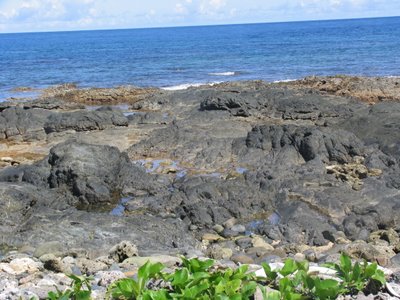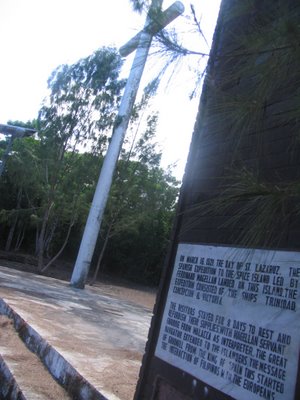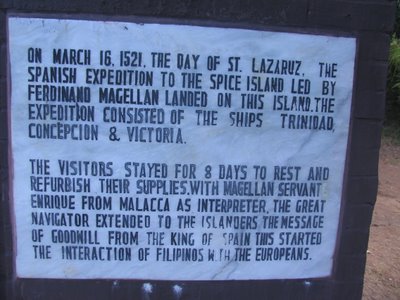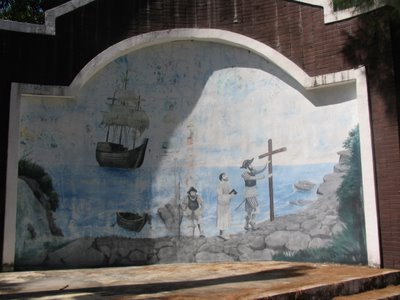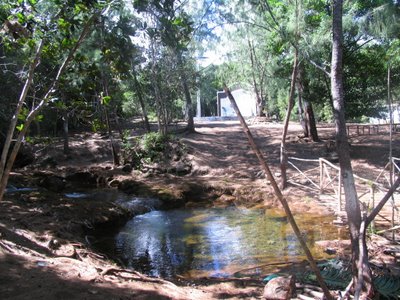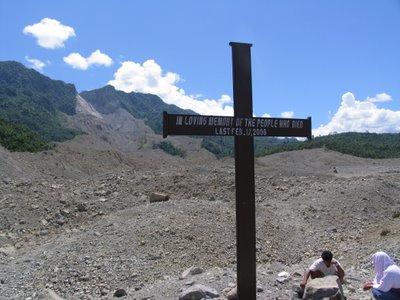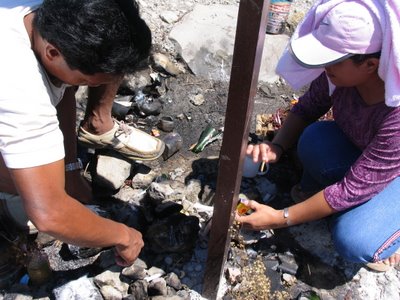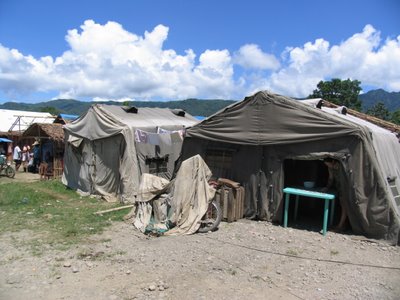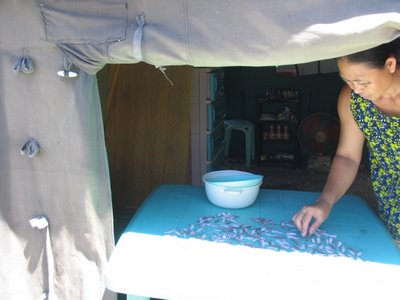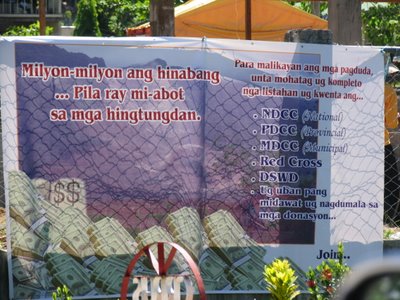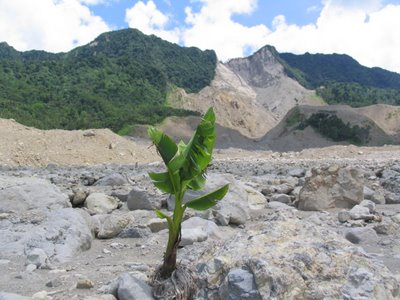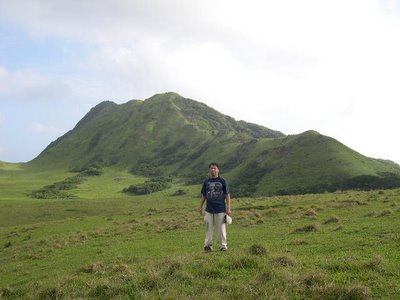Below is another article I submitted to the Youngblood section of Philippine Daily Inquirer (came out July 29, 2000). I hope this article would help us feel better about ourselves as Pinoys. -----
Frites et poulet (fries and chicken).
"Not again," I muttered to myself as I sat down for dinner at the restaurante universitaire in the dormitory where I am staying in Paris. I was contemplating the prospects of yet another boring dinner when an equally bored-looking African student took his seat in front of me. He watched his plate, took a few bits of fries, then pushed it away and shook his head. Obviously tired of having to eat almost the same stuff every night, he looked at me and then started to ask in French peppered with thick African accent, "Where are you from?" "From the Philippines," I said.
His eyes grew wide. From the way he looked at me, I could guess what his next question would be. "Ah, a Filipino!" he exclaimed, his voice brimming with excitement as if he had found the answer to an eternal question that was bothering him for a long time. Then between chewing his fries and drinking his Coke, he asked me conspiratorially, "Are you a Muslim?"
I pretended not to have heard anything. This guy was obviously misinformed about our country's religious statistic, which was quite pardonable since the Philippines and Africa are world's apart. What is more outrageous is when someone from Imperial Manila looks at you with suspicion because you happen to have told him you came from Mindanao. This happened to me many times before. People tended to keep their distance when I told them I was from Zamboanga del Norte, thinking that I was a Muslim. Don't get me wrong. There is nothing wrong with being a Muslim. What pisses me off are the shallow perceptions of some people from Luzon that all Muslims are war freaks and are bound to run amok. That is prejudice pure and simple.
The African student ignored my silence and asked his next question: "Are you a Muslim? Are you an Abu Sayyaf?" The mention of Abu Sayyaf woke me up from my dreamless stupor. "Nope," I replied. "And granting that I am, do you have a problem with that?" Surprised by my heated response, he took his plate and transferred to the next table. "Serves him right," I told to myself.
I could not blame him though. It all started when a cargo vessel was shipwrecked off the coast of Jolo in April, killing at least 100 on board.
That story caught the attention of the French media. This was followed by the crash of Air Philippines Flight 407 in Davao a week later.
A French colleague noted that news from the Philippines were being featured more frequently on TV. I did not give it much thought. I told him developed countries did not have a monopoly of CNN, and people around the world needed a momentary respite from l'affaire Elian Gonzalez and his feuding clan.
I reassured myself that news like these happened very rarely. When was the last time we got really bad publicity in the world media? Was it during the Manila Filmfest scam? Or was it when a Filipino geologist, who was supposedly a genius, jumped to his death in the jungles of Indonesia after being implicated in a scam that rocked the world's mining industry? When such stories came out, people around the world talked about our country for a fleeting moment and then went on with their lives. I never imagined there would be bigger stories that would be featured by every major newsmagazine around the world, giving our country a reputation as one of the world's most dangerous places to live in.
What I am talking about are, of course, the abduction of 21 people, 10 of them Westerners from a tourist resort in Sipadan, Malaysia, and the infamous and fatally attractive "ILOVEYOU" virus. And who can forget the tragi-comedy of the PAL hijacker and his improvised parachute that refused to open. That episode must have earned us the title of Capital of the Absurd.
It makes me sad and very defensive to learn about the things going on in our country. How I am supposed to reply when people ask me for an update on the hostage drama in Sulu? Should I tell them our President considers the situation nothing but a minor problem that is happening in a far-flung island of the Philippines?
How would you react when your Swiss dorm mate tells you pointblank that the Philippines is not only an exporter of domestic helpers but Internet viruses as well? How do you answer a German student, frustrated over the very slow pace of the negotiations for the release of the hostages, especially a sick German woman, who posts a message on the Net that says, "A dumb president plus a dumb people equals a dumb country"?
I have no problem with Erap being called names. Ever since the President landed on the cover of Time Magazine, everyone around the world knows that when nature handed out brains, Erap was with Fernando Poe Jr. drinking Johnnie Walker Blue. As president, he has demonstrated little more than the false bravado of an action star. But I am not about to let any get away with an insult such as the German student delivered. I told him terrorism was not a monopoly of our country. Such things happen everywhere. Ireland has the dreaded IRA, France and Spain have the Basque separatists and England has the hooligans and white supremacists. And there are misfits in American schools who sow terror among their classmates. I reminded him that about the six million Jews killed during the Holocaust. Finally I wrote, "And between a maniacal leader like Hitler and a dumb one like ours, it's no contest: I will always choose the latter." He never replied.
But since the story about the "ILOVEYOU" virus and the hostage incident came out last month, not a few Filipinos have told me they no longer wanted to be associated with our country. Two Filipino tourists I met last month admitted that they passed off themselves as Thais. A Pinay married to a Frenchman said that she would reply in general and vague terms ("an Asian") whenever somebody inquires about her origins.
Since it would be futile to pretend to be somebody we are not and since we cannot hide the truth that we are Filipinos inside out, I told them, why should we not be proud of it? Oh, there are many positive things we can be proud of as a people. We are known for our hospitality, despite our material inadequacies. Our indomitable spirit allows us to smile despite economic woes. We may have yet to produce religious giants in the league of A.W. Tozer, Mother Theresa and Billy Graham, but our people have a deep, solid faith in God, which allows us to endure and keeps us resilient in times of difficulties.
More than this, we are a people whose heroism, selflessness and courage are worth more a thousand Nobel Peace Prize accolades. Our people venture into distant lands unknown, giving up the protective warmth of their families so they can build roofs over their children's heads and give them better chances of succeeding in life through education. I have known many of them here in France. I have heard many of their stories a hundred times. I have seen the sacrifices they make just so the family they love and left behind can lead better lives.
Indeed, notwithstanding the Love Bug virus and the hostage taking, I can say with confidence that no other race around the world could be as generous, dignified and noble as we are.


 Above is Taongbato, pushing the table hard as the door threatened to implode as the howling winds kept on slamming it from the outside.
Above is Taongbato, pushing the table hard as the door threatened to implode as the howling winds kept on slamming it from the outside.

 Dec. 1, 2006. The Day After. Their vehicle was unscathed after all. Their driver could not sleep the entire night as he was worried that the vehicle got hit by flying roofs or branches, or worse, turned turtle.
Dec. 1, 2006. The Day After. Their vehicle was unscathed after all. Their driver could not sleep the entire night as he was worried that the vehicle got hit by flying roofs or branches, or worse, turned turtle.

 Dec. 01, 2006. The Day After. Electric posts were thrown all over, some houses crumbled like deck of cards. A NAPOCOR transmission tower along the national highway 'wilted' like dying plant.
Dec. 01, 2006. The Day After. Electric posts were thrown all over, some houses crumbled like deck of cards. A NAPOCOR transmission tower along the national highway 'wilted' like dying plant.






